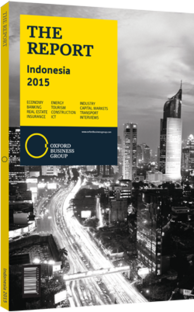Andi Wijaya, Chairman, Prodia: Interview

Interview: Andi Wijaya
Which areas within Indonesia’s health sector currently offer the most opportunities for investment?
ANDI WIJAYA: There is a lot of interest in developing new hospitals, as Indonesia’s universal health care programme is expected to put pressure on the public hospital system. Investors are therefore looking to develop private medical facilities as an alternative for the growing middle class. Also, an increase in purchasing power in the middle class is driving Indonesians to seek faster or higher-quality service in private medical care.
Stem cell therapy also represents an important investment opportunity. In countries like Russia, Malaysia, China and India it is already an important business, and in Indonesia it can also grow, with potential revenues of up to $18bn. However, despite promising prospects, stem cell therapy still represents a new area for investors in Indonesia, due to the uncertainty that characterises both the types of therapies as well as the related regulations. In this regard, the government, along with private sector players, is currently establishing a stem cell consortium in Indonesia, backed by the Ministry of Research and Technology, and the Ministry of Health. The consortium aims to ensure a focused research and development (R&D) programme on stem cells, in order to translate basic research into clinically viable therapies for diseases. It also aims to improve regulation, with a clearer emphasis on safety for the end user.
In short, there are still plenty of opportunities in the health sector in Indonesia at large, including clinical laboratories, stem cell testing and hospital development, particularly in the east of the country.
How is Indonesia catching up to meet the expected targets in stem cell research in the coming years?
WIJAYA: In Indonesia, there are three fundamental issues which need to be addressed: the lack of scientists in the stem cell therapy field, the uncertainty in regulation, and a proper R&D investment allocation. For example, despite strong government backing, the invitro diagnostics industry is battling with a shortage of skilled medical specialists and laboratory facilities, a situation which hampers the accurate identification, diagnosis and reporting of infectious diseases.
In terms of stem cell therapy, not many people are aware of the possibilities of this area; most people are just familiar with the label “stem cell”. However, the public is and will continue to be increasingly curious, and as a result there will be a growing number of clinics offering this type of therapy, with potential for stem cell therapy tourism down the line.
How do you assess the overall implementation of universal health care through the Health Care and Social Security Agency (BPJS)?
WIJAYA: Despite the undoubted benefits of the universal health care system, BPJS does not cover all the screening tests because it remains too expensive. There are still discussions on how to further implement and extend the coverage, although extending the screening tests is not financially sustainable.
The minister of health is trying to reduce BPJS’s costs by evaluating and focusing on the coverage of a smaller number of diseases. The evaluation will include aspects such as costs and health services under the BPJS programme, as well as the coordination and synergy between the central and regional administrations in implementing health programmes in line with the vision and mission of President Jokowi’s administration.
When traveling across different regions of the country, it can be seen that hospitals are often flooded with patients. This means the BPJS health system has had a large impact. People who previously were not able to get access to health care now have the possibility of getting treatment. However, Indonesia’s middle- to upper-class tends to believe that they can get better health care abroad. The issue here is that there are lower-quality facilities and auxiliary paramedic staff. The staff are not well-paid and do not take responsibility for their patients, so this is where efforts should be concentrated to improve health care in Indonesia.
You have reached the limit of premium articles you can view for free.
Choose from the options below to purchase print or digital editions of our Reports. You can also purchase a website subscription giving you unlimited access to all of our Reports online for 12 months.
If you have already purchased this Report or have a website subscription, please login to continue.

